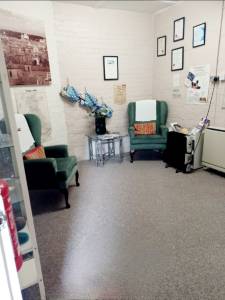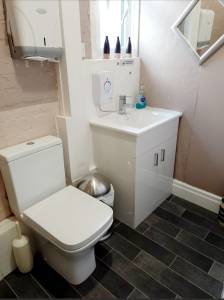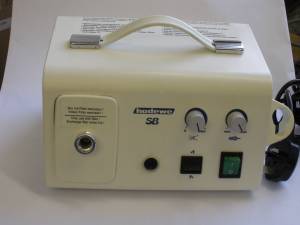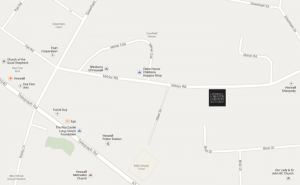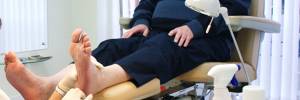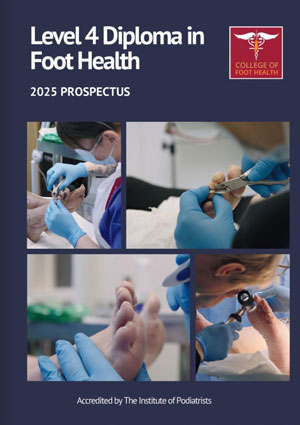See our Coronavirus toolbox of links for a list of websites offering advice which is continually being updated
UPDATED INFORMATION 27.01.22
A reminder that masks continue to be required in healthcare settings in England
UPDATED INFORMATION 15.07.21
Coronavirus: how to stay safe and help prevent the spread
This guidance will come into effect when England moves to step 4 of the roadmap. Read the current step 3 guidance on what you can and cannot do. While cases are high and rising, everybody needs to continue to act carefully and remain cautious. This is why we are keeping in place key protections, see here
Guidance for Wales is here
Guidance for Scotland is here
Guidance for The Republic of Ireland is here
UPDATED INFORMATION 07.07.21
Check if you can claim a grant through the Self-Employment Income Support Scheme here
If you’re self-employed or a member of a partnership and have been impacted by coronavirus (COVID-19) find out if you can use this scheme to claim a grant.
Work out your turnover so you can claim the fifth SEISS grant
Work out your turnover so you can claim the fifth SEISS grant
Find out the turnover figures you’ll need before you claim, where to find them and how they affect your grant amount here.
UPDATED INFORMATION 02.06.21
UK COVID-19 Update: Updated PPE Guidance, Vaccination ‘Huge Milestone’
Updated PPE Guidance
Public Health England has issued updated guidance recommending wider use of PPE for staff where a risk cannot otherwise be managed.
BMA Council Chair, Dr Chaand Nagpaul, said the guidance was “a step in the right direction” and it “asserts the legal obligations of carrying out proper risk assessments and implementing specific measures to manage risks. Crucially, it recommends that respiratory PPE (such as FFP3 masks) must be considered where the threat from passing on COVID remains high, and should not be limited to those areas where ‘aerosol-generating procedures’ (AGP) are taking place. This means extending their use to those staff whose exposure to airborne particles from a patient is no less, and whose risk of contracting COVID is therefore no less than for those engaged in those procedures classified as AGPs.
“Despite the majority of staff now having been vaccinated with two doses, it is important that those working on the front line should be given stronger guarantees with appropriate PPE (rather than just surgical masks), given that no vaccine provides complete protection. With the new variant being highly transmissible and more resistant to vaccines, we cannot give the virus any opportunity to spread if we have the means to prevent it.
“Ultimately, if doctors become infected, not only is there a risk that they pass on the virus to patients, but if they become very ill they are unable to provide care and patients do not get the treatment they need.
“Therefore, employers must now look at this guidance and implement it locally, protecting staff, and in doing so, protecting patients and minimising the wider impact on health services.”
see here for the Guidance
UPDATED INFORMATION 17.05.21
Guidance
(COVID-19) Coronavirus restrictions: what you can and cannot do
Coronavirus restrictions remain in place. Find out what you can and cannot do.
UPDATED INFORMATION 20.04.21
PM statement at coronavirus press conference: 20 April 2021
Prime Minister Boris Johnson made a statement at the coronavirus press conference. See here
UPDATED INFORMATION 12.04.21
Claim a grant if you’ve lost income
If you’re getting less work or no work because of coronavirus (COVID-19), you might be able to claim a grant through the Self-Employment Income Support Scheme. See here
UPDATED INFORMATION 09.04.21
New campaign urges public to get tested twice a week
From Friday 9 April, everyone in England will be eligible for free rapid COVID-19 tests, twice a week. See here
UPDATED INFORMATION 06.04.21
Twice weekly rapid testing to be available to everyone in England
Everyone in England will be able to access free, regular, rapid coronavirus (COVID-19) testing from 9 April, the Government has announced. See here for further information.
UPDATED INFORMATION 05.04.21
Some of the rules on what you can and cannot do will change on 12 April. You can read the ‘COVID-19 Response – Spring 2021’ (the roadmap out of lockdown) for more information on how COVID-19 restrictions will be eased in England.
You can also read the law that underpins these changes and the ongoing restrictions.
UPDATED INFORMATION 29.03.21
Coronavirus restrictions remain in place. Find out what you can and cannot do here
UPDATED INFORMATION 09.03.21
COVID-19 vaccination: consent form and letter for adults
Coronavirus (COVID-19) vaccination consent form and letter templates for adults who are able to consent.
UPDATED INFORMATION 01.03.21
Health and Social Care Secretary’s statement on coronavirus (COVID-19): 1 March 2021
Speech by Secretary of State for Health and Social Care Matt Hancock at the Downing Street coronavirus briefing.
UPDATED INFORMATION 22.02.21
Prime Minister sets out roadmap to cautiously ease lockdown restrictions
PM Boris Johnson has announced the government’s roadmap to cautiously ease lockdown restrictions in England.
UPDATED INFORMATION 17.02.21
Book a Coronavirus Vaccine here
UPDATED INFORMATION 09.02.21
Covid-19 Infection, Prevention and Control Guidance January 2021
UPDATED INFORMATION 01.02.21
Health and Social Care Secretary’s statement on coronavirus (COVID-19): 1 February 2021
Speech by Secretary of State for Health and Social Care Matt Hancock at the Downing Street coronavirus briefing.
UPDATED INFORMATION 27.01.21
Prime Minister’s statement on coronavirus (COVID-19): 27 January 2021
Prime Minister Boris Johnson gave a statement at the coronavirus press conference.
UPDATED INFORMATION 11.01.21
Operational guidance: vaccination of frontline health and social care workers
Further to the letter of 30 December 20201 this update provides additional operational guidance on the immediate requirement to vaccinate frontline health and social care workers ensuring maximum uptake of vaccination and timely, equitable access across staff groups.
see more here
UPDATED INFORMATION 10.01.21
COVID-19: guidance for health professionals
COVID-19: guidance for health professionals
Information on COVID-19, including guidance on the assessment and management of suspected UK cases.
UPDATED INFORMATION 06.01.21
Advice for clinically extremely vulnerable in new Tier 4 areas
Regulatory approval of COVID-19 Vaccine AstraZeneca
Information for healthcare professionals and the public about the COVID-19 Vaccine AstraZeneca.
UPDATED INFORMATION 05.01.21
Coronavirus cases are rising rapidly across the country. Find out what you can and cannot do.
National lockdown: Stay at Home
What you can and cannot do during the national lockdown
UPDATED INFORMATION 22.12.20
Advice for clinically extremely vulnerable in new Tier 4 areas
Advice for clinically extremely vulnerable in new Tier 4 areas
This group is advised to stay at home at all times, unless for exercise or medical appointments, and not to attend work, even if they are unable to work from home.
UPDATED INFORMATION 21.12.20
COVID-19 (SARS-CoV-2): information about the new virus variant 20.12.20
COVID-19 (SARS-CoV-2): information about the new virus variant
The new strain transmits more easily than the previous variant but there is no evidence that it is more likely to cause severe disease or mortality.
UPDATED INFORMATION 19.12.20
Prime Minister’s statement on coronavirus (COVID-19): 19 December 2020
Prime Minister’s statement on coronavirus (COVID-19): 19 December 2020
Prime Minister Boris Johnson gave a statement at the coronavirus press conference.
UPDATED INFORMATION 09.12.20
Details of Pfizer/BioNTesh SARS- Cov-2 vaccine data finally available
Details of Pfizer/BioNTesh SARS- CoV-2 vaccine data finally available
After announcing their approval of the first vaccine against SARS-CoV-2 earlier this week, the UK government has now released the ‘REG 174 INFORMATION FOR UK HEALTHCARE PROFESSIONALS‘ document for COVID-19 mRNA Vaccine BNT162b2
UPDATED INFORMATION 03.12.20
Register for an antibody test kit to check if you’ve had coronavirus before
NHS Test and Trace in the workplace
An antibody test is a blood test to check if you’ve had coronavirus (COVID-19) before. You can register for an invite to get a test kit.
UPDATED INFORMATION 02.12.20
NHS Test and Trace in the workplace 02.12.20
NHS Test and Trace in the workplace
Guidance on what to do if you or someone you employ is contacted by NHS Test and Trace, including self-isolation and financial support.
UPDATED INFORMATION 02.12.20
COVID-19 Poster generator
COVID-19 Poster generator
If your business, organisation or event operates across multiple branches or you have multiple businesses, you will need to create a poster for each unique location.
UPDATED INFORMATION 02.12.20
COVID-19 Poster generator
COVID-19 Poster generator
If your business, organisation or event operates across multiple branches or you have multiple businesses, you will need to create a poster for each unique location.
UPDATED INFORMATION 01.12.20
Claim a grant through the Self-Employment Income Support Scheme 29 November 2020
Claim a grant through the Self-Employment Income Support Scheme
If you’re self-employed or a member of a partnership and have been impacted by coronavirus (COVID-19) you may be eligible to claim the grant.
UPDATED INFORMATION 26.11.20
Full list of local restriction tiers by area 26 November 2020
Full list of local restriction tiers by area
This page sets out the full list of local restriction tiers by area from Wednesday 2 December 2020.
UPDATED INFORMATION 26.11.20
Working safely during coronavirus (COVID-19) 26 November 2020
Working safely during coronavirus (COVID-19)
Find out how to make your workplace COVID-secure.
UPDATED INFORMATION 25.11.20
COVID-19 Winter Plan 23 November 2020
COVID-19 Winter Plan
The government’s plan for managing COVID-19 through the winter.
UPDATED INFORMATION 24.11.20
Prime Minister publishes COVID Winter Plan 23 November 2020
Prime Minister publishes COVID Winter Plan
Prime Minister Boris Johnson today published the government’s COVID Winter Plan.
UPDATED INFORMATION 24.11.20
Local restriction tiers: what you need to know 23 November 2020
Local restriction tiers: what you need to know
Sets out the local restriction tier system that will be in place from Wednesday 2 December, including what you can and cannot do in each tier.
UPDATED INFORMATION 24.11.20
Tier posters: Medium, High and Very High 23 November 2020
Tier posters: Medium, High and Very High
A series of posters displaying information about the various tiers of restrictions in England from 2 December 2020.
UPDATED INFORMATION 18.11.20
Coronavirus and your wellbeing
Coronavirus and your wellbeing
Many of us are struggling to maintain our mental wellbeing during the coronavirus (Covid-19) pandemic. This page has tips to help yourself cope, including ways to support yourself during winter.
UPDATED INFORMATION 17.11.20
Health and Social care Secretary’s statement on coronavirus (COVID-19) 16 November 2020
Health and Social Care Secretary’s statement on coronavirus (COVID-19)
Secretary of State for Health and Social Care Matt Hancock gave a statement at the coronavirus press conference.
UPDATED INFORMATION 01.11.20
New National Restrictions from 20 November 2020
New National restrictions.
Information on the new national restrictions, including what they mean for working from home and business closures, why they are being introduced and the financial support available.
UPDATED INFORMATION 28.10.20
Financial support for businesses during coronavirus (COVID-19)
Find out what financial support you can get for your business.
A full range of business support measures have been made available to UK businesses.
This page help businesses find out how to access the support that has been made available, who is eligible, when the schemes open and how to apply.
UPDATED INFORMATION 12.10.20
Prime Minister Boris Johnson made a statement on coronavirus to the House of Commons.
Prime Minister’s statement on coronavirus (COVID-19): 12 October 2020
Prime Minister Boris Johnson made a statement at the coronavirus press conference.
Guidance
Local COVID alert levels: what you need to know
Information on local COVID alert levels, including what they mean, why they are being introduced and what the different levels are.
Press release
Liverpool City Region to move into ‘very high’ local COVID Alert Level following rise in coronavirus infections
Following discussions over the weekend, the government and local leaders have agreed the need for further action to reduce the spread of coronavirus in the Liverpool City Region.
From Wednesday, Liverpool City Region will be placed onto the ‘Very High’ Local Covid Alert Level. The Liverpool City Region includes the local authority districts of Halton, Knowsley, Sefton, St Helens and Wirral, as well as the City of Liverpool.
Under the country’s new three tiered Local Covid Alert Level system, the Very High alert level applies in the areas of greatest concern.
Full list of local COVID alert levels by area
The areas in England listed as local COVID alert level high and local COVID alert level very high.
UPDATED INFORMATION 28.09.20
Protect your loved ones. Download the app.
The new NHS COVID-19 app, now available to download for free in England and Wales, is the fastest way to see if you’re at risk from coronavirus. The faster you know, the quicker you can alert and protect your loved ones and community.
The app has a number of tools to protect you, including contact tracing, local area alerts and venue check-in. It uses proven technology from Apple and Google, designed to protect every user’s privacy.
UPDATED INFORMATION 25.09.20
Help and support if your business is affected by coronavirus (COVID-19)
Watch videos and register for the free webinars to learn more about the support available to help you deal with the economic impacts of coronavirus
Check if you can claim a grant through the Self-Employment Income Support Scheme
If you’re self-employed or a member of a partnership and have been adversely affected by coronavirus (COVID-19) find out if you can use this scheme to claim a grant.
Self-Employment Income Support Scheme grant extension
The grant is being extended from 1 November 2020. Find out if you’re eligible and how much you can get.
UPDATED INFORMATION 24.09.20
About the track and trace app
How the app will help you
The app is designed to make fast, accurate, digital contact tracing possible while protecting your privacy and identity. It uses the minimum amount possible of your personal data.
Contact tracing depends on being able to determine who a person who has tested positive for COVID-19 could have infected. Manual contact tracing involves asking an infected person to remember who they have been in contact with; the person can only identify the people they know. The app supports contact tracing through your phone, without needing to know anyone’s names or identities.
The app includes a notification feature which will alert you if you’ve been near another app user who tests positive for coronavirus, if your local area (postcode district) has a changed risk status, or if you have visited a venue, which later reports an outbreak whilst you were there. If you test positive, the app will ask you to allow those you’ve been in contact with to be alerted. It uses technology developed by Apple and Google called ‘exposure notification’ and ‘exposure logging’ to do this. The people notified will not know who you are. See more here
